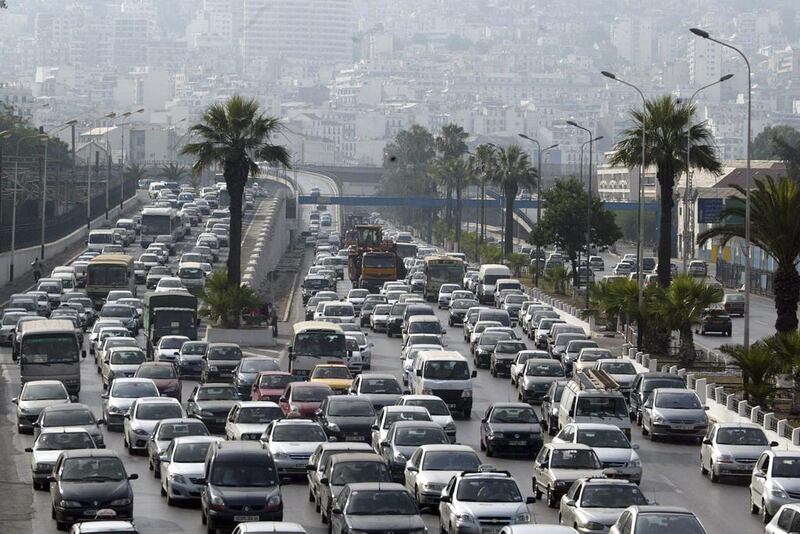Algeria’s struggle to plug its budget deficit in the face of lower oil revenues remains a significant challenge for the Opec member, according to a new report from the International Monetary Fund.
“Despite a sizeable fiscal consolidation in 2017, the fiscal and current account deficits remain large,” the IMF executive board said in a statement, following the conclusion of its Article IV consultation with the African nation. “Real GDP growth slowed sharply, mainly driven by a contraction in hydrocarbon production, although growth in the non-hydrocarbon sector was stable."
While the delegation praised the government’s efforts to diversify its economy amid lower oil prices, a factor since 2014, it encouraged sustained fiscal consolidation and wide-ranging structural reforms to facilitate a more diversified growth model and support private sector development.
_____
Read more:
Algeria to borrow from central bank to tackle deficit
Russia and Saudi Arabia have the clout to persuade Opec nations to agree to new quotas
IMF to approve $2bn payment to Egypt
______
In September last year, Algeria's prime minister laid out a sweeping plan to stem the budget deficit caused by the country's heavy dependence on oil and gas revenues.
The five-year plan presented by Prime Minister Ahmed Ouyahia, which included direct borrowing from the central bank to avoid tapping international debt markets, aimed to balance the budget by 2022, and reverse a deficit caused by the oil price slum, which also cut the country's foreign reserves by nearly half.
The IMF estimates Algeria ran a fiscal deficit of 3.2 per cent of gross domestic product last year, against 13.5 per cent in 2016.
In February, the country’s finance minister, Abderrahmane Raouia, said the government was considering reforms to its subsidy system, which included cutting petrol subsidies in 2019 and some others in 2020.
According to the IMF report, unemployment in Algeria increased to 11.7 per cent in September last year, from 10.5 in September 2016 and remains particularly high among the youth and women.
Average inflation declined from 6.4 per cent in 2016 to 5.6 per cent due to slowing inflation for manufactured goods and services, and stood at 3.4 per cent year-on-year in April 2018, it said.
The IMF directors warned that the Algerian authorities’ current policy mix - which includes increased fiscal spending in 2018, structural reforms and temporary restrictions on imports - may only bring "short-term respite", putting the economic outlook at risk.
"It will likely exacerbate fiscal and external imbalances, raise inflation, accelerate the loss of international reserves, heighten financial stability risks and, eventually, lower growth," the IMF noted.
It recommended a more sustainable gradual fiscal consolidation in 2018 via financing options such as external borrowing to finance investment projects. The IMF also advised a gradual exchange rate depreciation to support the country's adjustment process and a tightening money stance if inflationary pressures arise.







